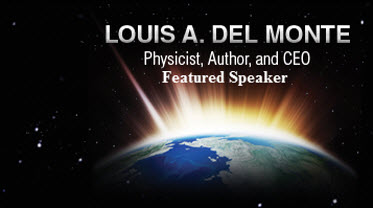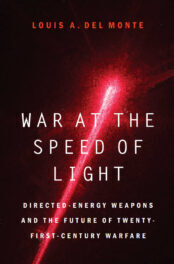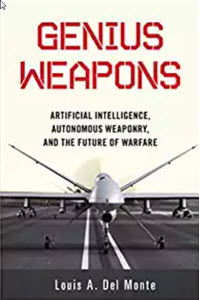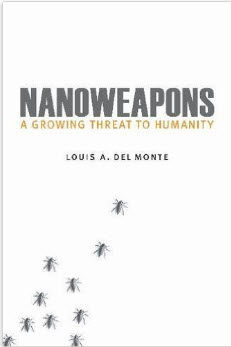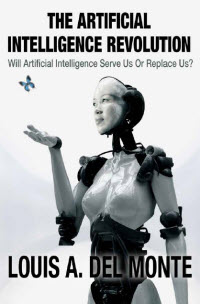My new book and the first in its genre, Nanoweapons: A Growing Threat to Humanity, is now available at a special introductory price of 30% off from all popular booksellers.
From the Publisher, Potomac Books
Nearly Invisible Weapons of Mass Destruction
Nanoweapons just might render humanity extinct in the near future—a notion that is frightening and shocking but potentially true. In Nanoweapons Louis A. Del Monte describes the most deadly generation of military weapons the world has ever encountered. With dimensions one-thousandth the diameter of a single strand of human hair, this technology threatens to eradicate humanity as it incites world governments to compete in the deadliest arms race ever.
In his insightful and prescient account of this risky and radical technology, Del Monte predicts that nanoweapons will dominate the battlefield of the future and will help determine the superpowers of the twenty-first century. He traces the emergence of nanotechnology, discusses the current development of nanoweapons—such as the “mini-nuke,” which weighs five pounds and carries the power of one hundred tons of TNT—and offers concrete recommendations, founded in historical precedent, for controlling their proliferation and avoiding human annihilation. Most critically, Nanoweapons addresses the question: Will it be possible to develop, deploy, and use nanoweapons in warfare without rendering humanity extinct?
Louis A. Del Monte is an award-winning physicist, featured speaker, and is the chief executive officer of Del Monte and Associates, Inc. During his thirty-year career as a physicist and business executive at IBM and Honeywell, he led the development of microelectronics and sensors and developed patents fundamental to the fabrication of integrated circuits. He is the author of The Artificial Intelligence Revolution: Will Artificial Intelligence Serve Us or Replace Us? and How to Time Travel: Explore the Science, Paradoxes, and Evidence.
Praise
Louis Del Monte provides a futurist clarion call for people to start thinking and talking about this emerging technology—a technology fraught with the potential for great good and great harm.”—Col. Thomas R. Lujan, U.S. Army (Ret.), attorney at law
“Nanoweapons opens the cloak of secrecy on the developing area of nanotechnologies and how societies may use them in the future for good and evil. A very captivating topic.”—Tamara Bratland, engineer for a Fortune 500 medical device company
“A very informative read. Nanotechnology can enhance our lives or eradicate humankind. This book can help preserve our future.”—Richard Spielberger, former Honeywell Engineer Fellow
